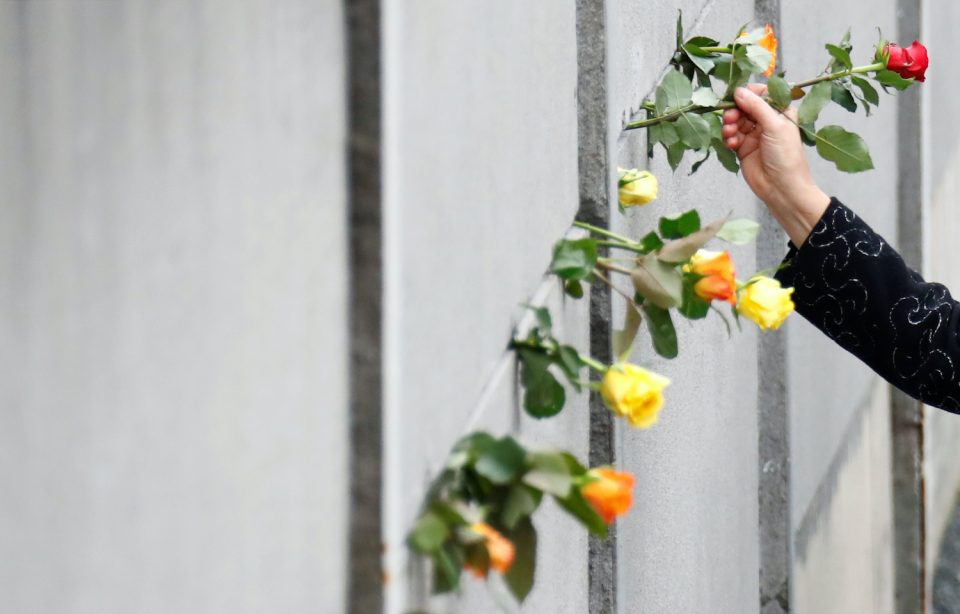Germany on Saturday marked the 30th anniversary of the opening of the Berlin Wall, a pivotal moment in the events that brought down Communism in Eastern Europe.
Leaders from Germany, Poland, Hungary, Slovakia, and the Czech Republic attended a ceremony at Bernauer Strasse — where one of the last parts of the Berlin Wall remains — before placing roses in gaps in the once-fearsome barrier that divided the city for 28 years.
Axel Klausmeier, head of the Berlin Wall memorial site, recalled the images of delirious Berliners from East and West crying tears of joy as they hugged each other on the evening of Nov 9, 1989.
Klausmeier paid tribute to the peaceful protesters in East Germany and neighbouring Warsaw Pact countries who took to the streets demanding freedom and democracy, and to then-Soviet leader Mikhail Gorbachev’s policy of reforms.
The protests and a stream of people fleeing East Germany piled pressure on the country’s Communist government to open its borders to the West and ultimately end the nation’s post-war division.
Thirty years on, Germany has become the most powerful economic and political force on the continent, but there remain deep misgivings among some in the country about how the transition from socialism to capitalism was managed.
German Chancellor Angela Merkel acknowledged this in a recent interview with the newspaper Sueddeutsche Zeitung, saying that “with some things, where one might have thought that East and West would have aligned, one can see today that it might rather take half a century or more”.
Speaking at a memorial service in a small chapel near where the Wall once stood, Merkel commemorated those who were killed or imprisoned for trying to flee from East to West Germany and insisted that the fight for freedom worldwide isn’t over.
“The values upon with Europe is founded … they are anything but self-evident. And they must always be lived out and defended anew,” she said.
“The Berlin Wall, ladies, and gentlemen is history and it teaches us: No wall that keeps people out and restricts freedom is so high or so wide that it can’t be broken down.”
Merkel also recalled that Nov 9 remains a fraught date in German history, as it also marks the anniversary of Kristallnacht — the Night of Broken Glass, an anti-Jewish pogrom in 1938 that foreshadowed the Nazi Holocaust.
German President Frank-Walter Steinmeier thanked Eastern European neighbours for enabling a peaceful revolution.
“Without the courage and the will to freedom of the Poles and Hungarians, the Czechs and Slovaks, the peaceful revolutions in Eastern Europe and Germany’s reunification would not have been possible,” he said.
Steinmeier pointed out, however, that the historic event did not mark the “end of history” as the US historian Francis Fukuyama famously stated. The struggle of political systems had continued and the future was more uncertain than ever before, he added.
“Liberal democracy is being challenged and questioned,” Steinmeier said. That’s why Germany and its European allies had to fight every day for a peaceful and united Europe with each country having to do its part to overcome differences.”
The festivities in Berlin were due to culminate with a party at the Brandenburg Gate in the evening featuring the Staatskapelle Berlin orchestra directed by Daniel Barenboim and electronic music with the techno DJ legend WestBam.




